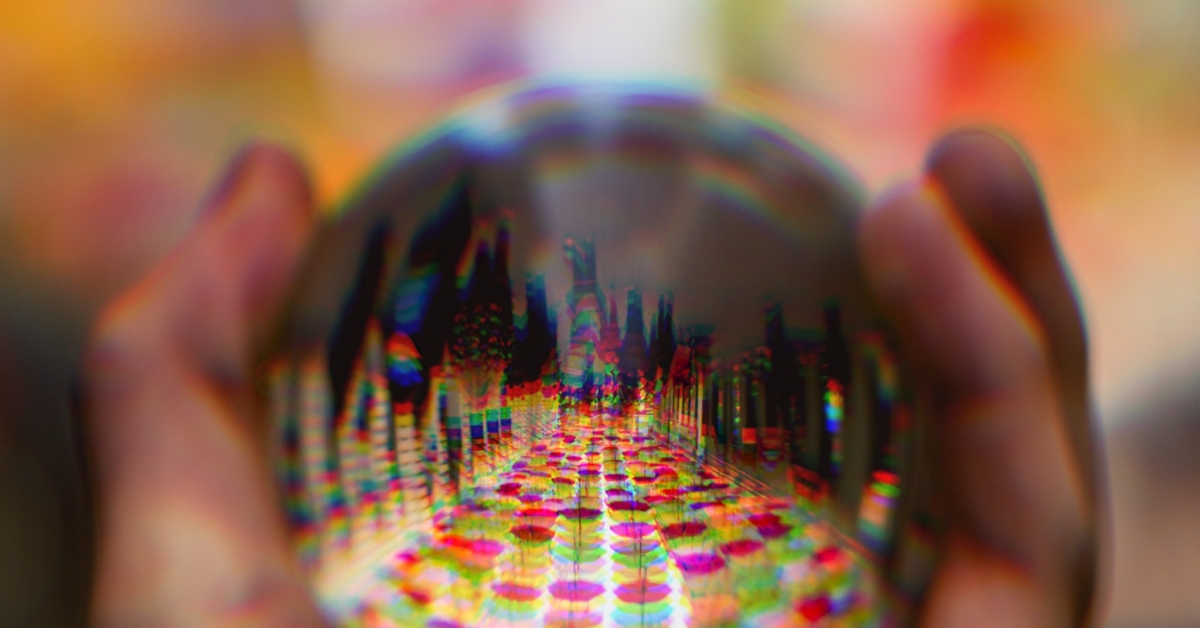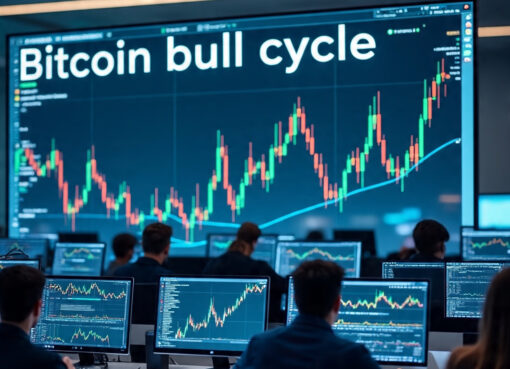Amy Webb, a quantitative futurist and founder of the strategic foresight firm Future Today Institute, thinks the world can, indeed, get worse.
In her most recent book “2020 Tech Trend Report: Strategic Trends that Will Influence Business, Government, Education, Media and Society in the Coming Year,” Webb examines the companies – and the people that run them – that will make the future either a utopia or a new hell.
Webb’s major idea centers around how the G-MAFIA (an invective and acronym of Google, Microsoft, Amazon, Facebook, IBM and Apple) and its Chinese counterpart in BAT (Baidu, Alibaba and Tencent) are becoming increasingly interwoven in our lives.
Digital innovations – from artificial intelligence to payments architectures – are not in themselves dangerous. But decisions made today to serve political or shareholder interests, rather than the public good, could destabilize our shared future.
This post is part of CryptoX’s “Internet 2030” series.
She’s not the only one that sees a dystopian AI arising from the ether, nor the only person to think the G-MAFIA and BAT exert outsized influence over society and politics. However, despite technological revolts and regulatory hamstringing, she admits these companies are not going anywhere.
CryptoX corresponded with Webb over email. The conversation has been lightly edited and condensed for clarity.
What do you suppose will happen to the “G-MAFIA” in a decade? Will they continue to consolidate power and if so, what happens to the rest of the internet?
The G-MAFIA will continue to consolidate power. Even if antitrust measures pass in the United States, and that’s a big if, it’s unlikely the companies will accept the findings of the investigations and agree to be broken apart.
So the question is really about how do the G-MAFIA evolve? Amazon, Google and Apple are making bold, decisive moves into healthcare. From Amazon’s Halo wristband to Apple Fitness+ to Google’s acquisition of Fitbit, big tech players are working now to collect and analyze our health data.
But those are just devices you wear on your wrist – what about the biometric detection algorithms that mine, refine and optimize us? Or the move into electronic health data and records? And insurance in the case of Amazon, and outpatient care in the case of Apple’s employee clinics?
If we zoom out, big tech getting into health care is just one of many areas where we’re seeing disruptive change happening at a relatively fast clip. Microsoft is building the future of smart agriculture. Facebook is, as you know very well, working on the future of cryptos and DLTs. IBM is always ignored, but it’s making important strides in open enterprise architecture for AI.
They’re all vying for cloudshare. Power will be consolidated in a way that will be difficult to see if you’re not intentionally gathering data and working to connect dots across products, services and industries. They are amassing more power and influence than our governments.
What might the cultural or political effects be of an ever-greater consolidated and extractive web?
We talk about privacy a lot, and journalists certainly write a lot of stories about data sharing, privacy and consolidation within the tech sector. But when it comes to everyday consumers and business leaders, it just doesn’t seem like these are priority issues. We’ll feel the effects when there is litigation, new policy or sweeping policy enacted.
You write about the tech giants of America and China as competitive and cooperative forces. What do you expect will happen to the “splinternet” – will the divide between east and west grow wider?
Unfortunately, with China’s provocative moves to achieve cyber sovereignty, we’re going to see a deeper splinternet.
See also: China Aims to Be the World’s Dominant Blockchain Power – With Help From Google, Amazon and Microsoft
There are greater forces at play here. China’s Belt and Road Initiative, which swaps infrastructure development in emerging markets for debt, could lead to BRI countries being coerced into using the Chinese internet rather than the existing internet, which to be fair relies on data transfer for monetization.
Projects like Tim Berners-Lee’s Solid are an interesting example of emerging decentralized approaches to the web, applications and data use. Similarly, I think we’ll see more distributed networks like Golem and Morpheus.
But it will take a long time for Web 3.0 initiatives to move from the fringes to the mainstream.
Do you see a genuine way out through distributed technologies that may give people control over their own data?
I worry about people who never update their passwords – should we entrust them to manage sensitive data? There are complex questions about data hygiene, data governance, compliance, risk. Distributed tech solutions solve some of our problems, but not all.
Few people have an understanding of how data are collected, by whom, for what purpose. There are lots of organizations proposing some kind of “ownership” model, where we individually would “own” our data. What does that mean?
I want consumers to be much better aware of what data they are generating – that includes the digital emissions they’re releasing without realizing it. Think of all the metadata being generated by our connected devices, the ambient sounds in our homes and offices, our movements and gestures. All of those digital emissions, plus the PIIs collected now by contract tracing apps and biometric scanning systems – I mean, we’re swimming in data.
How can we become better at predicting the future?
As a futurist I’ll be the first person to tell you that I can’t predict the future. The math doesn’t work out. If I’m dealing with a limited quantity of variables, then yes, I might be able to make a prediction. The reason we’re continually surprised is because we’re only thinking tactically about what matters right now, or we’re thinking fancifully about the deeper future. The hard work is finding signals in the present and modeling their next-order impacts using data and rigorous frameworks. Predictions are brittle. The goal of any good futurist is preparation.
See also: Don Tapscott – A New Social Contract for the Digital Age
The question really is: how can we reduce uncertainty? We should all try to get better at confronting cherished beliefs and accepting chaos and chance as drivers of change. Ultimately, strategic foresight isn’t about making predictions. It’s about creating a state of readiness and knowing when to act. This includes being ready for a sudden chaotic event, like a natural disaster or a global pandemic. The best strategic foresight work results in insights, internal alignment, and faster, data-driven decision-making. I like to use a flywheel analogy. With some pushing and persistent effort, the effect is a reduction in surprise and uncertainty.
I do not believe in “Black Swan” events, which are unpredictable events that come as a total surprise and have severe consequences. Nothing is truly instantaneous. When people talk about the pandemic as a “Black Swan” event, they are wrong. The virus emerged, governments made poor choices, and now we’re dealing with the aftermath. Plenty of models predicted we’d be in this situation back in December if good, disciplined choices were not made.




